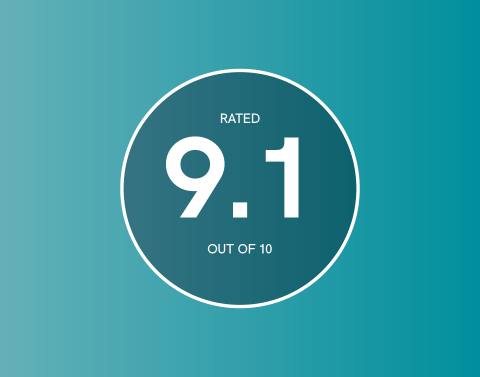Regardless of whether you’re in a small business or a multinational organisation, you shouldn’t underestimate the importance of building effective, long-lasting business relationships. Whether your career is just starting out, or you're managing your own company, building positive professional connections is important at every stage in your career.
From managing a business to collaborating on successful projects, you need to establish and maintain relationships with your peers, your managers, suppliers, and various other internal and external stakeholders. If you build successful stakeholder relationships, this can enhance your business profile, create potential career opportunities, and assist the overall success of the business.
So how do you successfully build stakeholder relationships? And how do you ensure that these relationships enable you to influence in a positive way? Take a look at our 5 top tips...
Build trust
Trust is absolutely paramount to building successful and influential partnerships. Show that you're trustworthy by always doing what you say you are going to do. Be honest and open about project progress and never over-promise or feel pressurised to say yes to unreasonable demands. Your stakeholders will respect you more for being transparent about situations and this will ultimately build trust.
Think of solutions that benefit both parties
Being able (and willing) to put yourself in another person’s shoes and understand how they feel is key to building strong stakeholder relationships. Try to view business situations from your stakeholder’s perspective and be committed to sourcing solutions that will benefit all parties.
The idea of a win/win solution is not based on compromise but on the understanding that mutual benefit can actually be drawn from every project. It will also show that you have a deep understanding of your stakeholders needs, and know how to put it all into practice.
Keep channels of communication open
Whether a potential supplier has been in touch and you don’t need anything from them at the moment, or they're your largest and most important client, it's always important to continue communicating with them so they feel kept in the loop. You can obviously prioritise your communications in order of importance, so you don’t need to respond straight away, but simply ignoring people shows you have little or no regard for building strong relationships. You never know what connections might be useful in the future, so always send a quick email response or phone call to acknowledge contact. It’s vital to building and maintaining your network.

Ask questions
The most effective stakeholder relationships are built on people asking purposeful questions, whether it be to check understanding of a particular project or prompt discussion. Asking questions, especially open questions, develops rapport and encourages conversations. It also gives stakeholders a sense of ownership over particular projects and shows you're listening and invested in what their opinion.
Continuously demonstrate your competence
Building great stakeholder relationships is by no means a one-off exercise. You should continuously develop these relationships by demonstrating your competence and reliability, keeping updates on track and communicating key agreements and decisions. Perhaps try treating your stakeholders like you would a valued client; take time to have one-to-one conversations and engage with them regularly. Take interest in their world and you’ll earn respect, demonstrate your competence, and ultimately build strong, meaningful stakeholder relationships.
Currently searching for your next opportunity? Our Specialist Recruiters at Oliver James are ready to provide you with expert advice and guide you through the process. Oliver James operates across 14 different locations. Get in touch with a local recruiter via our Contact Page, or apply to one of our current jobs available in:



